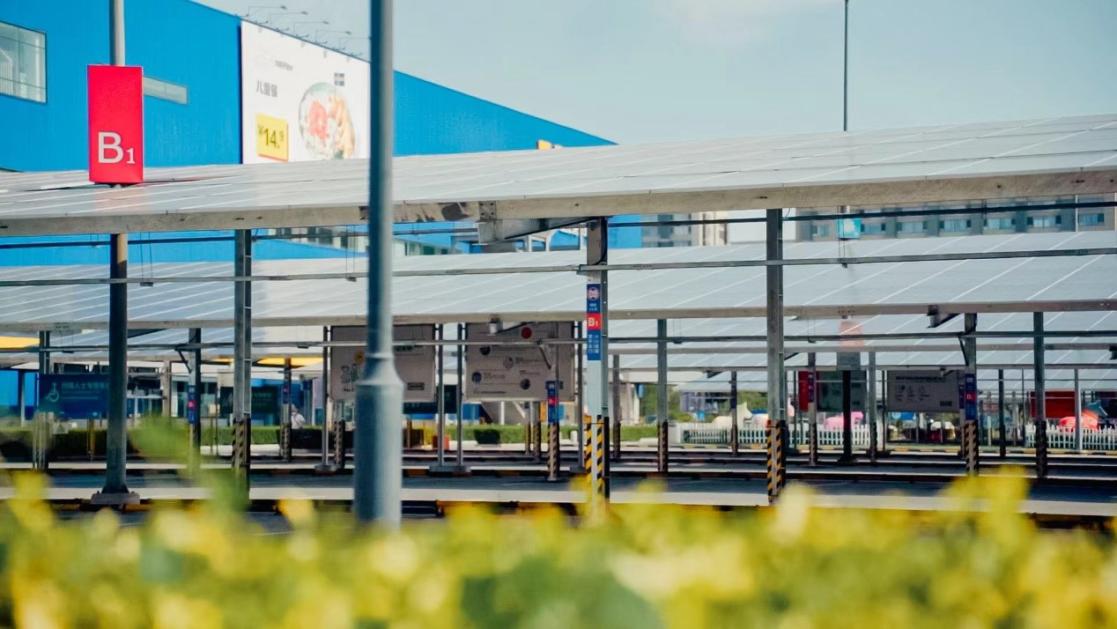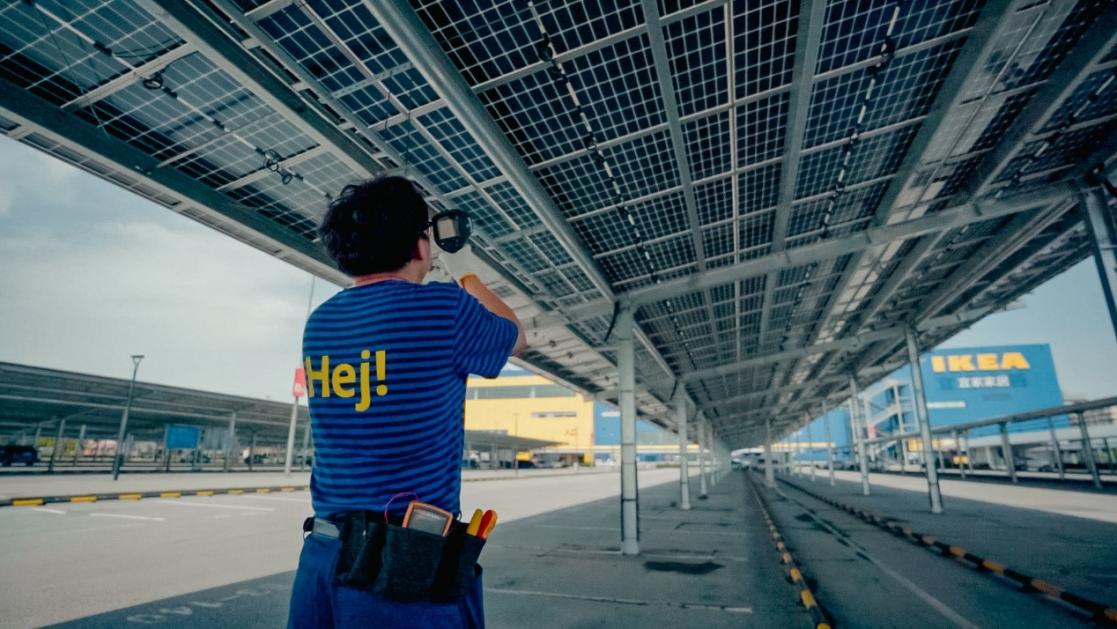by Xuefei Chen Axelsson
Stockholm, Feb. 3(CED) — Swedish Home Furnishing Retailer Encourages Consumers in China to Say “Hej” to Sustainable Lifestyle.
In a typical shopping centre of IKEA, the renowned home furniture and accessories retailer from Sweden in Europe, there are several compartments being dressed up as a variety of mini showrooms to give consumers an intuitive perception on how gracious living environment could possibly be.
In March 2022, IKEA Tianjin Dongli Store was inaugurated. It is the company’s first energy-positive store in the IKEA world.
Creativity and determination were needed to make this project happen. IKEA Tianjin Dongli Store renovated the parking lot roof with new photovoltaic panels to generate solar energy. These photovoltaic panels have a total area of 17,288 square meters which are equivalent to 2.4 standard soccer fields.
These photovoltaic panels are estimated to generate 5.597 million watts of power annually. This could reduce carbon emission around 4,197.75 tons each year which are equivalent to planting around 233,000 trees for the world.
The design concept of the IKEA Tianjin Dongli store epitomises the ambition of company’s global “People and Planet Positive” sustainability strategy. IKEA has set a goal to be the climate-positive company in 2030. One of the efforts to make it happen is to promote on-site renewable energy generation and new installations and make more renewable energy available to the many. In this project, IKEA had seamlessly collaborated with local partners like State Grid (State Grid Corporation of China (SGCC)) to generate more electric power than what the store consumes. The surplus of the clean power will also go back to State Grid and further benefit the local community.
In addition, with the rapid development of digital technology, IKEA accelerates its digital transformation in the field of energy saving and carbon reduction emission. In the daily operations, IKEA has applied the digital twin platform with data insight, and artificial intelligence technology. It enables IKEA to optimise energy use and save costs through comprehensively and real-time tracking the building operation, cost, and carbon emissions, and to further support the realisation of IKEA’s sustainable development goals.Image

Image




